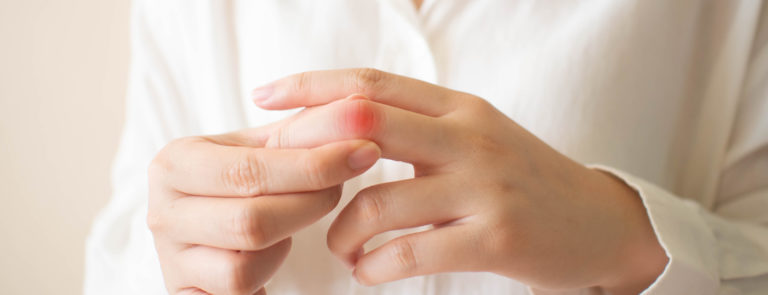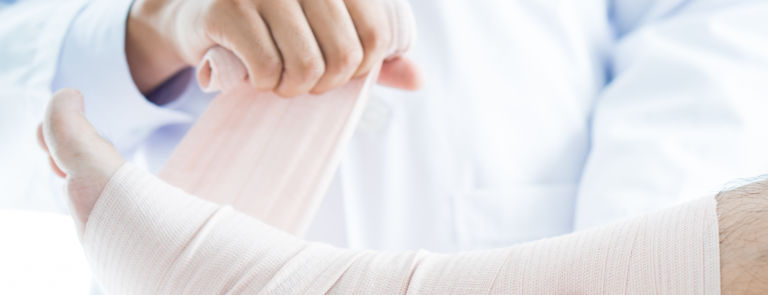10% off £35
Code:SAVE
Living with gout

Disvocer the ways to continue a normal life when living with gout symptoms. The right treatments and help from medical professionals can help you.
Gout is an inflammatory type of arthritis that affects around 1 in 40 people in the UK, so you are not alone1. Experiencing pain and swelling in joints can be very painful for those who experience regular gout attacks as symptoms can last up to 10 days, but there are ways to continue a normal life with the right treatment and help from medical professionals.
What causes gout?
Gout is caused by too much uric acid in the bloodstream. The build up of this causes urate crystals to form around joints, just under the skins surface. High levels of uric acid in the body and experiencing gout may mean that the kidneys aren’t effectively removing the uric acid in urine.
Risk of gout
Those that are male, over the age of 40, have a family member that experiences gout, are male and consume over 21 units of alcohol a week, are female and consume over 14 units of alcohol a week, experience high blood pressure, live with diabetes, are a woman post menopause, have kidney damage, are overweight, drink a lot of sugary drinks and regularly eat large amounts of foods rich in purines may be at risk of experiencing gout.
Gout symptoms
An attack of gout can be triggered by injuring or bruising a joint that’s more painful than usual, being very stressed or experiencing another illness. You will feel the associated gout symptoms pain from the affected joint can and then see it has become inflamed, red and increased in temperate. Attacks usually happen late at night or in the early hours.
Stages of gout
There are four stages of gout that occur;
- Stage 1 occurs before the first attack of gout. This is where the levels of uric acid are high, and crystals are forming in the joints. This stage is usually symptomless.
- Stage 2 is acute gout. This is where the crystals that have formed in stage 1 move around and cause an attack. Usually an attack is due to an injury, like stubbing a toe, stress or an illness. Symptoms, such as swelling, pain and redness, usually occur at night-time and get work over the coming hours, then ease off over after a few, up to 10 days. Most usually only ever experience one attack of gout, however, some may experience another within a twelve-month period.
- Stage 3 is interval gout. This is the time between the attacks where you aren’t experiencing pain, but there may be signs of inflammation that could cause damage to the joints.
- Stage 4 is chronic gout. This is where you experience high levels of gout for longer than 10 years and experience attacks and the associated symptoms more frequently.
How to reduce uric acid levels
Gout can be managed through uric acid-lowering medications and treatments including pain relief or natural remedies. Levels of uric acid in your diet can increase these levels. Learn which foods are high in purines and change your diet. Making lifestyle changes including reducing your alcohol intake and exercising regularly, but avoiding strenuous exercise that puts pressure on the joints and maintaining a healthy weight can all contribute to managing gout. There are also alternative treatments or natural remedies that you could explore.
Last updated: 11th February 2020
Advice is for information only and should not replace medical care. Please check with your GP before trying any remedies.
Related Articles
Shop by wellness goal
Sign up for exclusive offers
Plus, get expert advice to support your health & wellness straight to your inbox when you sign up to Holland & Barrett emails.
Read our
privacy policy














